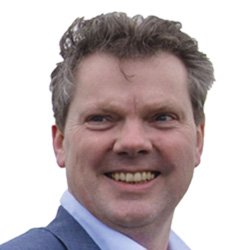Speaker Bio & Abstract

Kadaster International
The Netherlands
BiographyKees de Zeeuw is Director of Kadaster International at the Cadastre, Land Registry and Mapping Agency (Kadaster), The Netherlands and chair of the United Nations Group of Experts on Land Administration and Management (UN-GE-LAM). He holds an MSc degree in land and water management (1989). After long term contracts in Rwanda and Bolivia he has been working more than 10 years in environmental and geo-information sciences at Wageningen University and ResearchCentre. After being responsible at Kadaster for product and process innovation (2007 2010), he now is responsible for the coordination of Kadasters international activities and international cooperation projects. Kadaster International provides world wide advisory services in the domain of land administration, e-governance, geo-information services and SDI.AbstractThe 2030 Agenda for Sustainable Development calls for new data acquisition and integration approaches, including the contribution by earth observations and geospatial information, to leave no one behind. Given that an estimated 70% of humanity do not have secure land and property rights, there is a need to accelerate efforts to document, record and recognize people-to-land relationships in all its forms. In this regards the United Nations Expert Group on Land Administration and Management (UN-GGIM EG LAM) plays a leading role at the policy level by raising political awareness and highlights the importance to decision makers of the need for sustainable, efficient and fit for purpose land administration and management. An enabling framework is needed to raise awareness and provides a reference for member states when strengthening or modernising land administration and management. The Expert Group encourages leveraging existing global concepts and approaches, and national geospatial information management with its underpinning infrastructure including geodetic reference frame and fundamental geospatial data themes, to link people to land, by documenting, recording and recognizing people to land relationship in all this forms, to secure land and property rights for all, and improve the legal certainty of all citizens in the world. This enabling framework considers a number of principles including avoiding duplication, facilitating inclusiveness, and transparency underpinned by international standards, capacity development and culture of maintenance.